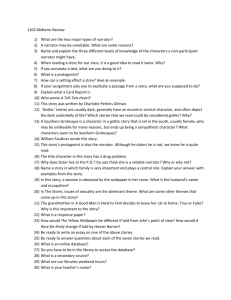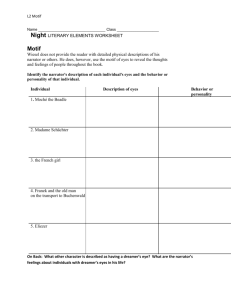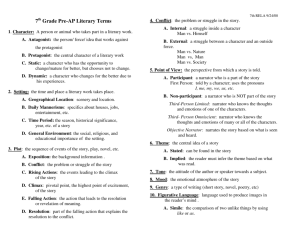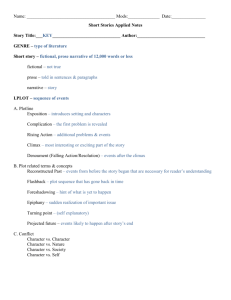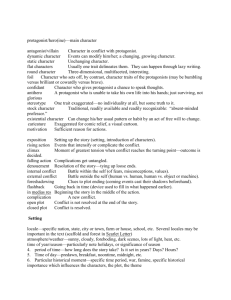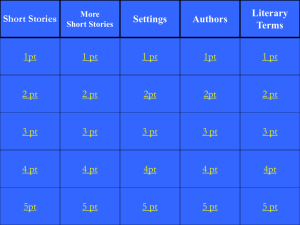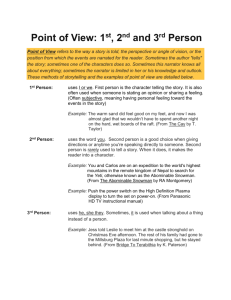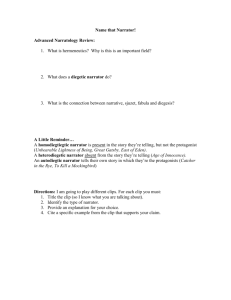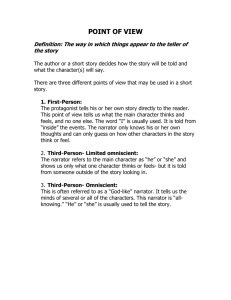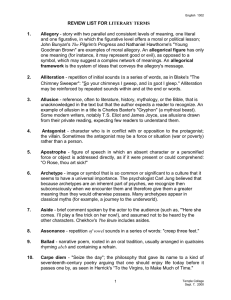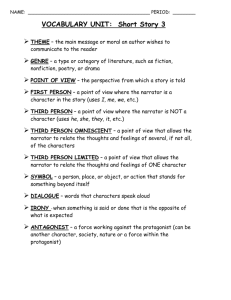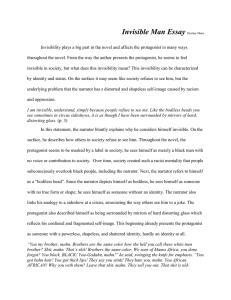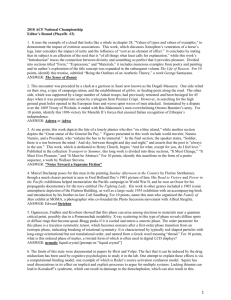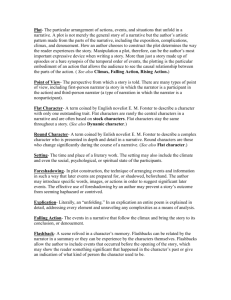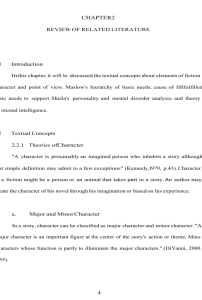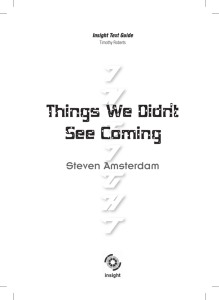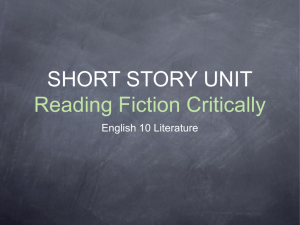literary terms - Helbling Readers BLOG
advertisement
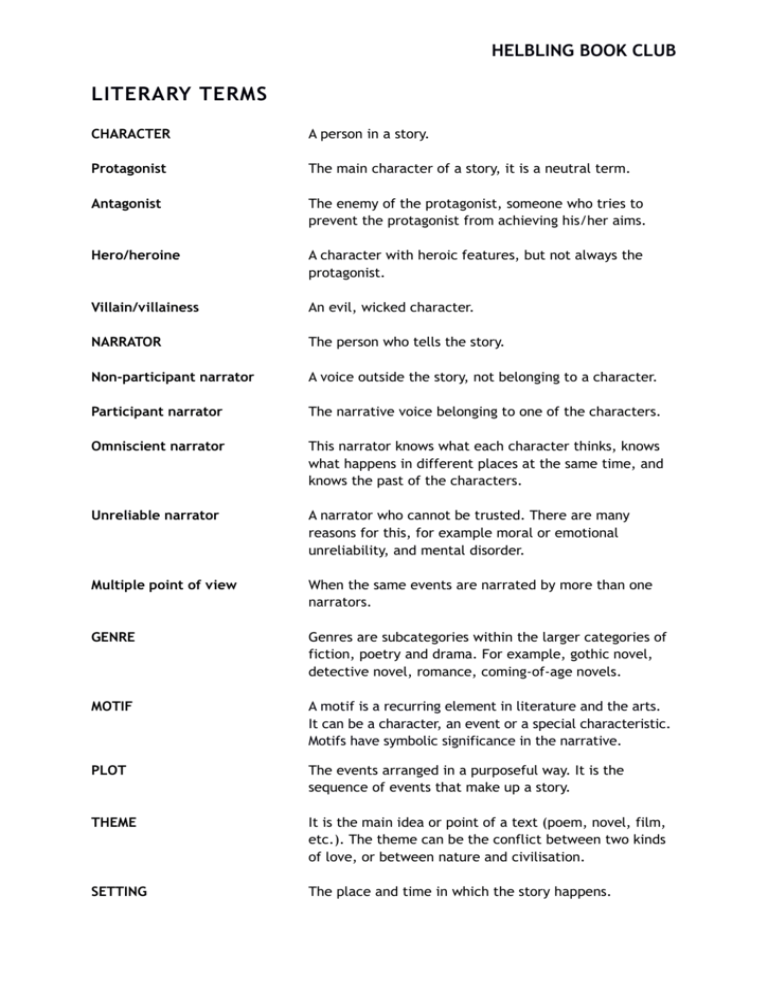
HELBLING BOOK CLUB LITERARY TERMS CHARACTER A person in a story. Protagonist The main character of a story, it is a neutral term. Antagonist The enemy of the protagonist, someone who tries to prevent the protagonist from achieving his/her aims. Hero/heroine A character with heroic features, but not always the protagonist. Villain/villainess An evil, wicked character. NARRATOR The person who tells the story. Non-participant narrator A voice outside the story, not belonging to a character. Participant narrator The narrative voice belonging to one of the characters. Omniscient narrator This narrator knows what each character thinks, knows what happens in different places at the same time, and knows the past of the characters. Unreliable narrator A narrator who cannot be trusted. There are many reasons for this, for example moral or emotional unreliability, and mental disorder. Multiple point of view When the same events are narrated by more than one narrators. GENRE Genres are subcategories within the larger categories of fiction, poetry and drama. For example, gothic novel, detective novel, romance, coming-of-age novels. MOTIF A motif is a recurring element in literature and the arts. It can be a character, an event or a special characteristic. Motifs have symbolic significance in the narrative. PLOT The events arranged in a purposeful way. It is the sequence of events that make up a story. THEME It is the main idea or point of a text (poem, novel, film, etc.). The theme can be the conflict between two kinds of love, or between nature and civilisation. SETTING The place and time in which the story happens.


